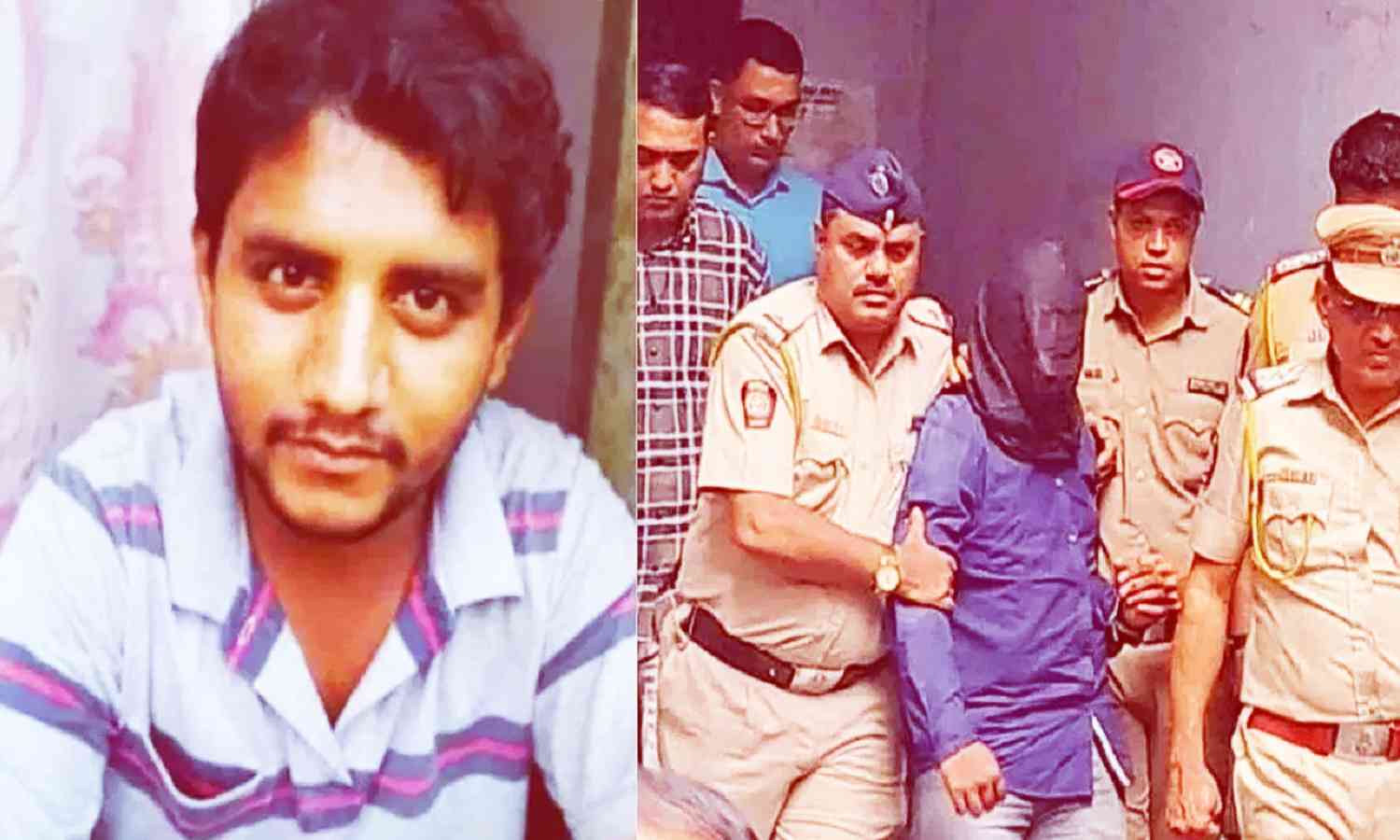Who is Pradeep Sharma - The Encounter Specialist who shot the Rape Accused?
This encounter has stirred a fresh wave of scrutiny, especially given the police unit involved—a team with a long history of involvement in high-stakes, often controversial cases. The Thane Crime Branch, whose officers were present during the encounter, was once led by the infamous "encounter specialist" Pradeep Sharma, a name synonymous with both ruthless law enforcement and contentious methods.
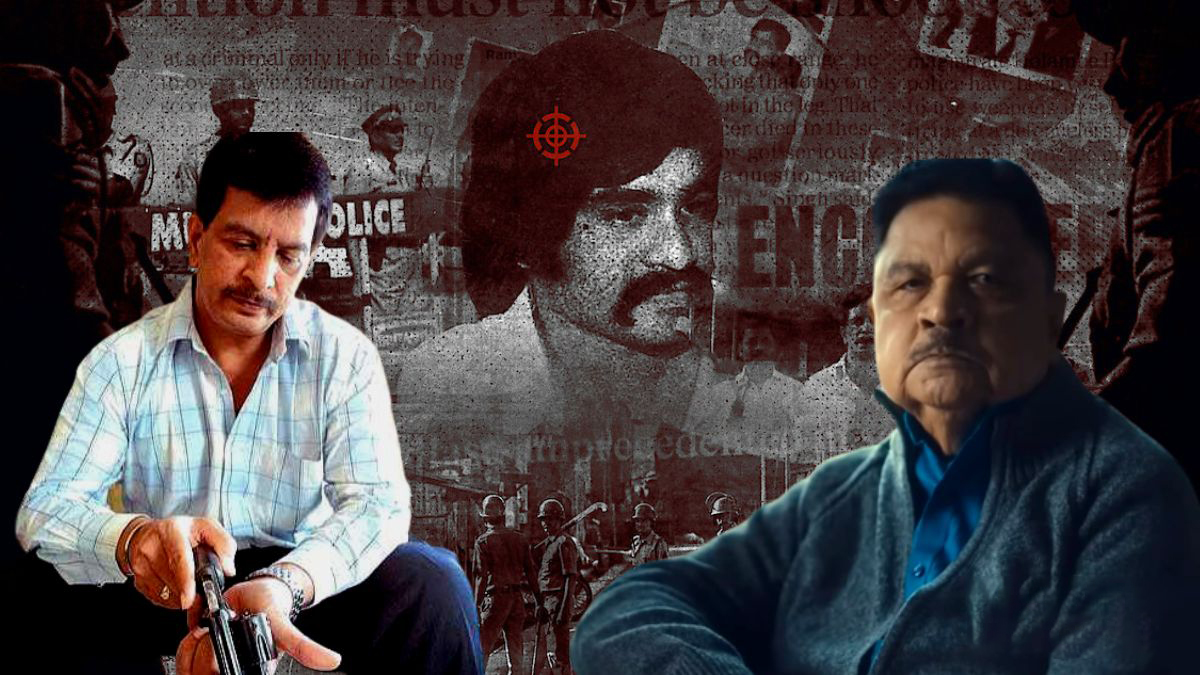
A Notorious Legacy
Pradeep Sharma, who was part of the unit responsible for Shinde's arrest, rose to prominence in the early 2000s for his numerous "encounters"—a term often used in India to describe police killings of criminals, sometimes under questionable circumstances. His notoriety reached such heights that he became a subject of popular media. Sharma featured prominently in Netflix’s docuseries *Mumbai Mafia: Police vs The Underworld*, which chronicles the turbulent period in Mumbai’s history when the city’s underworld was at its peak, and the police were often accused of adopting extreme measures to combat crime.
Sharma’s unit also made headlines in 2017 with the high-profile arrest of Iqbal Kaskar, the brother of fugitive underworld don Dawood Ibrahim, in an extortion case. These cases reinforced Sharma's reputation as a hard-hitting cop, unafraid of taking on dangerous criminals linked to organized crime. However, this legacy has been tainted by subsequent legal battles.
In 2006, Sharma was involved in a highly controversial incident: the police killing of Ramnarayan Gupta, an alleged associate of notorious gangster Chhota Rajan. The encounter was later declared a "fake" by the courts, leading to Sharma’s conviction earlier this year. The Bombay High Court sentenced him to life imprisonment for orchestrating Gupta's death, marking a dramatic fall for the once-celebrated officer.
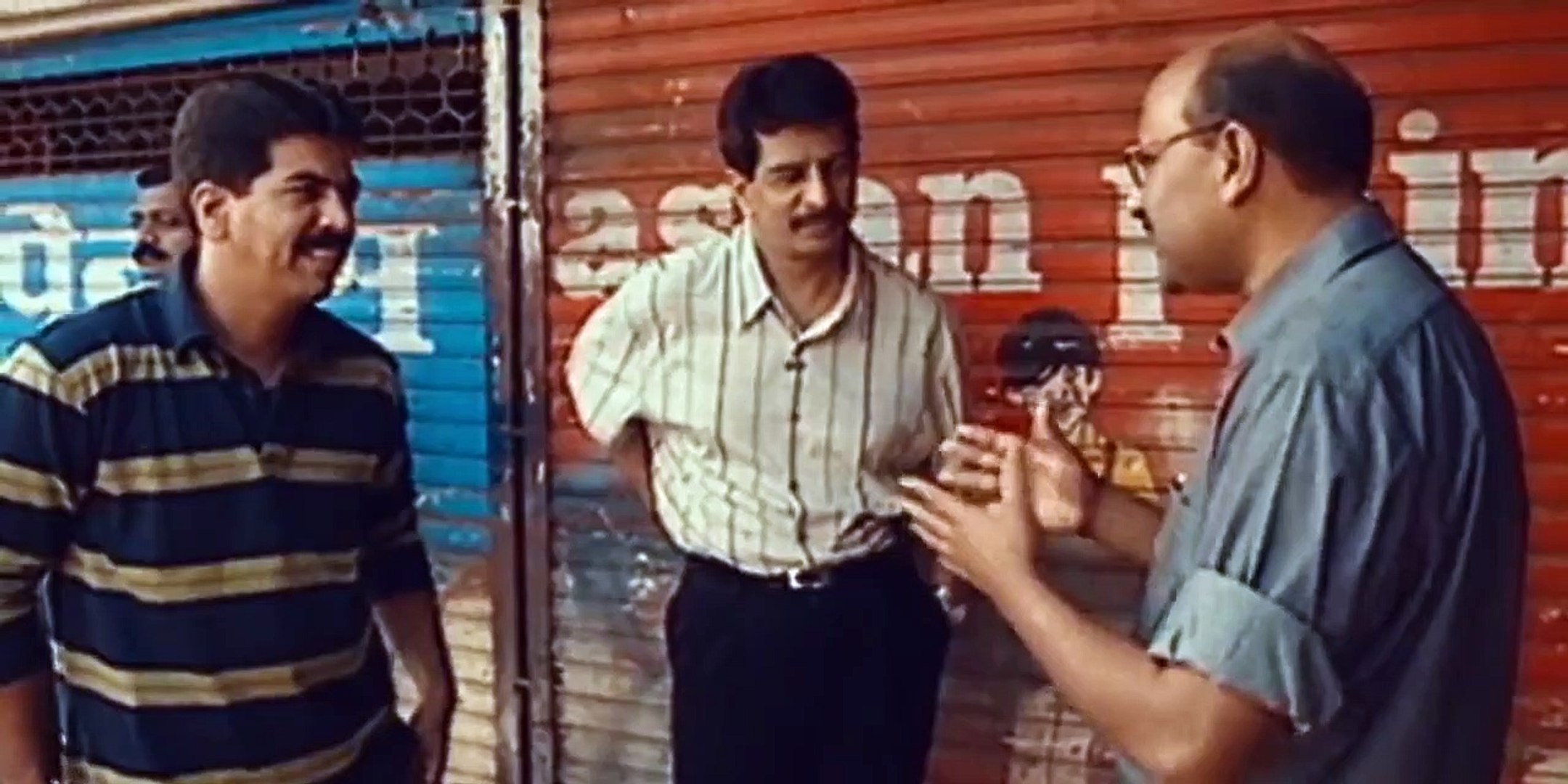
Culture of Encounters and Questionable Policing
The involvement of officers connected to Sharma’s legacy in the Shinde encounter raises important questions about the culture of "encounter specialists" in Maharashtra’s police force. While these officers are often credited with taking down dangerous criminals, the methods they use and the legitimacy of their actions frequently come under fire. Critics argue that such encounters bypass the judicial process, turning the police into judge, jury, and executioner.
Sharma's career has been the subject of several artistic portrayals, reflecting both the fascination and controversy surrounding his work. The 2014 Marathi film *Rege*, in which veteran actor Mahesh Manjrekar played a character based on Sharma, and author S. Hussain Zaidi’s book *The Class of 83*, further explore the morally ambiguous world of encounter specialists and their role in battling organized crime.
A Troubling Incident
As investigations into Akshay Shinde’s actions continue, the broader implications of his death in police custody remain a point of debate. While authorities maintain that Shinde’s attempt to seize a gun and attack officers justified their response, the incident draws attention to the larger issue of custodial violence and the limits of police power. Shinde's alleged crimes, involving the sexual abuse of minors, have understandably stirred public anger, but his death without a proper trial leaves lingering questions about justice, due process, and the risks of allowing violent police interventions to become normalized.
The involvement of an officer like Sanjay Shinde—who shares both a surname and a troubled past with the accused—adds another layer of complexity to the story. Having previously served under Pradeep Sharma, Sanjay Shinde’s connection to the same notorious police lineage further underscores the murky world of encounters and raises questions about the training and accountability of officers who operate on the frontline of law enforcement.
In this case, what began as an investigation into heinous crimes against children has ended in a violent encounter, one that encapsulates Maharashtra’s fraught history with police justice. For many, the story of Akshay Shinde’s death is not just about one individual’s crimes but about a systemic issue—one that blends heroism with violence and leaves the line between justice and excess disturbingly blurred.
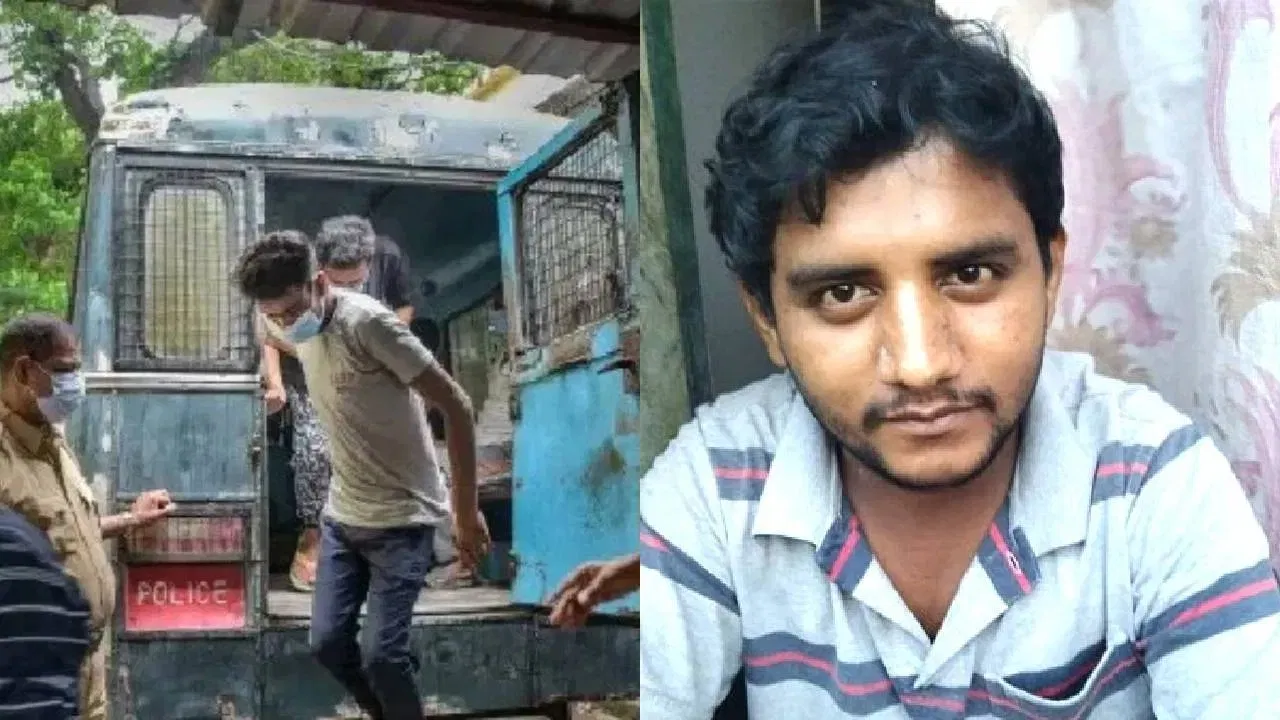
Controversial Police Encounter: The Fatal Shooting of Badlapur Rape Accused Akshay Shinde
In a shocking turn of events, Akshay Shinde, the man accused of raping two minors, was fatally shot by police on Monday. Shinde, who had been in custody since August following allegations of sexual abuse, was being transferred from Taloja Jail when a violent confrontation erupted between him and the officers. The incident, now under investigation, has raised serious questions about the nature of the encounter and whether due process was followed.
A Violent Escape Attempt
The sequence of events began after officers from Badlapur arrived at Taloja Jail to take custody of Shinde. Already facing charges for the sexual assault of two young children, Shinde was now embroiled in a fresh case of rape and assault filed by his first wife. As the police convoy transporting him neared the Mumbra bypass, Shinde reportedly managed to snatch a firearm from one of the constables, despite being handcuffed. In a chaotic moment, Shinde opened fire at the police escort, injuring Constable Nilesh More. In response, Sanjay Shinde, another officer on duty, shot back, critically injuring Akshay. The accused was immediately rushed to the hospital, but he succumbed to his injuries shortly after. Constable More, who suffered injuries in the incident, is currently undergoing treatment, with his condition reportedly stable.
Allegations of a Planned Encounter
While the police maintain that the shooting was an act of self-defense, opposition parties have raised doubts about the legitimacy of the encounter. Critics have questioned how a handcuffed man could overpower police officers, seize a firearm, and successfully fire at them. This discrepancy has led to allegations that Akshay Shinde's death may have been premeditated—a so-called "encounter," a term often used in India to describe extrajudicial killings by law enforcement. Yesterday’s events unfolded as police officers from Badlapur traveled to Taloja Jail to take Shinde into custody over the fresh charges. While transporting him, the police team approached the Mumbra bypass, where the situation took a violent and unexpected turn. According to the police, Shinde, despite being in handcuffs, managed to seize a constable's firearm and open fire on the officers escorting him. In the exchange, Constable Nilesh More was injured. Responding swiftly, Officer Sanjay Shinde returned fire, critically wounding the accused. Akshay Shinde was rushed to a hospital but later succumbed to his injuries.
Suspicion and Skepticism Surround the Shooting
While the police have described the shooting as an act of self-defense, the incident has sparked a flurry of controversy, particularly among opposition parties and critics of the police. The key question many are asking is how a man, handcuffed and supposedly under tight supervision, could manage to wrestle a gun away from a trained officer. This has led to suspicions that the encounter may not have unfolded as the police described, and some are suggesting that Akshay Shinde’s death could have been a planned extrajudicial killing, commonly referred to as an “encounter” in India.
Opposition leaders have called for a thorough investigation, arguing that the circumstances surrounding the shooting raise too many unanswered questions. If indeed this was a deliberate killing, it would follow a disturbing pattern of extrajudicial encounters that have marred the country’s police force for decades
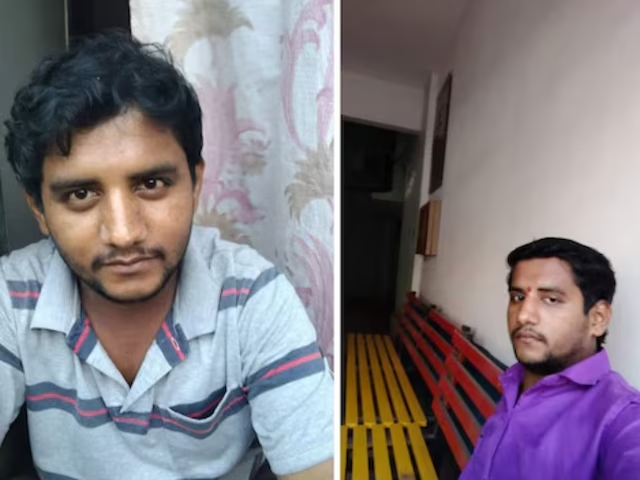
Government Response: Special Investigation Team Formed
In response to the growing controversy, the Maharashtra government has swiftly formed a Special Investigation Team (SIT) to look into the details of the shooting. The SIT's mandate is to independently assess whether the police acted within the bounds of the law or if excessive force was used in what should have been a controlled situation.
Encounters—where police kill suspects under the guise of self-defence—have long been a subject of debate in India. While they are sometimes seen as a necessary evil in the fight against dangerous criminals, they also represent a darker side of law enforcement, where due process is bypassed in favour of immediate retribution. This particular case, involving an accused rapist, adds another layer of complexity as public sentiment may favour swift justice for someone accused of such heinous crimes. However, legal experts warn that justice must still be served through the courts, not through the barrel of a gun. The case of Akshay Shinde is emblematic of a larger issue plaguing law enforcement in Maharashtra and beyond. Allegations of extrajudicial killings, often justified as encounters, have surfaced repeatedly, casting a long shadow over the reputation of the police. While many officers act with integrity and within the boundaries of the law, these incidents raise critical concerns about the misuse of power and the erosion of legal safeguards meant to protect both suspects and the public. As the SIT begins its investigation, all eyes will be on the findings. Was this a tragic consequence of a dangerous criminal's actions, or was it a calculated move to eliminate a man who had become an embarrassment to law enforcement?
Controversy Erupts Following the Death of Akshay Shinde in Police Firing
The recent death of Akshay Shinde in police firing has quickly escalated into a contentious issue, particularly in the politically charged atmosphere leading up to the assembly elections in Maharashtra. Shinde was killed during what authorities described as retaliatory firing after he allegedly snatched the firearm of a police constable and opened fire while being transferred from Taloja Jail to the Thane police station.
As details of the incident emerged, questions began to surface regarding the circumstances surrounding Shinde's death. The Opposition has raised significant concerns about how a handcuffed man could manage to seize a gun from a constable. This skepticism has catalysed allegations that Shinde's death could be classified as an “encounter”—a term often used in India to describe extrajudicial killings carried out by law enforcement under controversial circumstances.
The implications of this incident are profound, especially as it unfolds against the backdrop of impending elections. With the Opposition eager to capitalise on any missteps by the ruling government, the narrative surrounding Shinde's death may play a pivotal role in shaping public opinion and influencing voter sentiment.
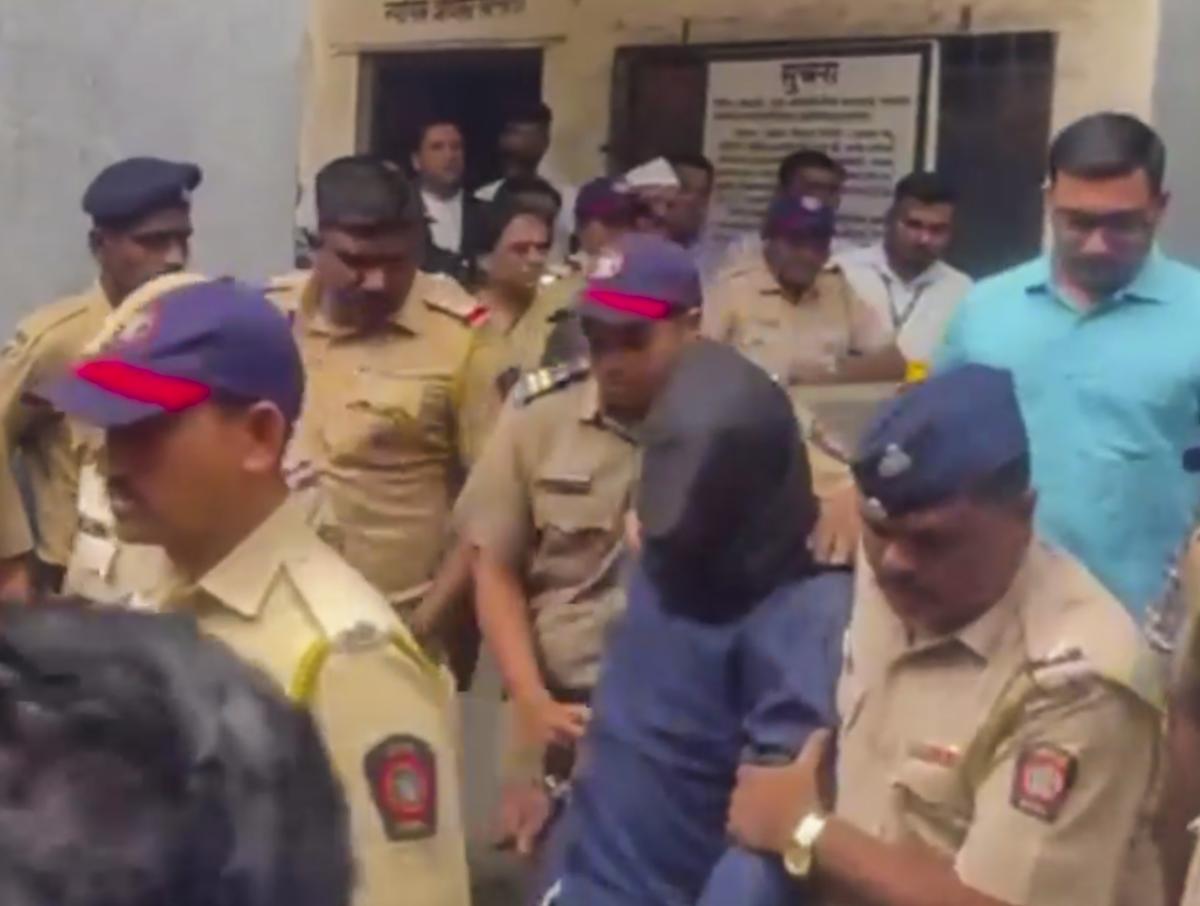
A Climate of Distrust
The incident highlights a growing distrust towards the police, particularly regarding their use of force and accountability. Critics argue that such incidents can undermine the rule of law and erode public confidence in the justice system. If it is determined that Shinde's death was indeed an extrajudicial killing, it could raise serious ethical and legal questions about police practices in Maharashtra.
As the political landscape becomes increasingly polarised, the focus will undoubtedly shift to how the government responds to this incident. The stakes are high, and the manner in which the authorities handle the fallout from Shinde's death will likely resonate with voters, making this a crucial issue in the lead-up to the elections. As investigations continue, it remains to be seen whether this incident will lead to meaningful reforms in police practices or if it will become another chapter in the long saga of political controversy in Maharashtra. For now, the death of Akshay Shinde serves as a stark reminder of the delicate balance between maintaining law and order and ensuring justice is served through appropriate legal channels.
Image Source: Multiple Agencies
Ⓒ Copyright 2024. All Rights Reserved Powered by Vygr Media.

